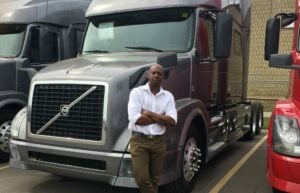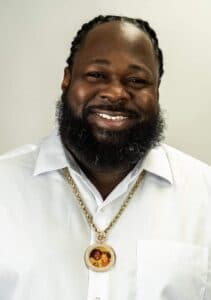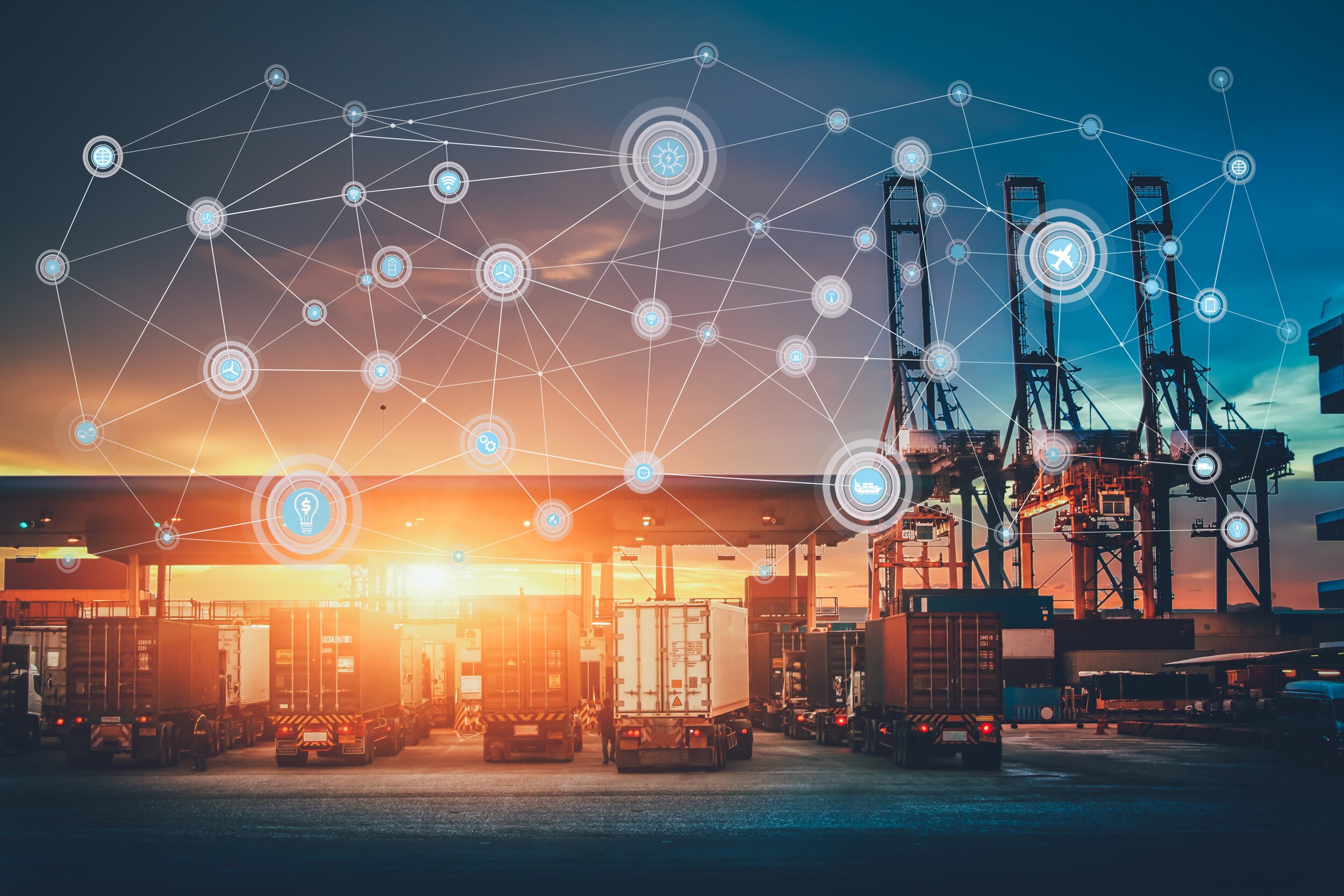When Ashley Watson and Sharesse Jackson launched the National Minority Women Association in Transportation (NMWAIT) in September 2021, they knew they wanted men to be involved.
“We don’t want to leave the men out, just because we got left out,” Sharesse says. “That’s why we wanted to start the M2 chapter. We don’t want to leave them out, because we would just continue the cycle of people getting left behind.”
NMWAIT is “a membership-based, minority women-owned advocacy organization whose objective is to increase the visibility, capacity, and profitability of professional minority women and men in the transportation industry.”
The M2 chapter, which launched in February 2022, “was formed to make sure minority men’s voices are heard and valued.” M2 consists of “minority men who understand, value, and are committed to seeing the new generation of men get to the next level.”
Among these men are new M2 board members Damien Blackman and Charles Taylor.
 “Our mission is to give a voice to the minority in the industry,” says Damien, who has been a truck driver for 18 years and the owner of Toronto-based Jada Trucking Empire for five years. “We want to make sure our voices are heard and valued. Many people [in trucking] are coming from low-income neighborhoods. We just want to make sure we have a voice, we want to make sure we are included, we want to make sure we make some money, and we want to make sure we get seats at the table, so no one gets left behind.”
“Our mission is to give a voice to the minority in the industry,” says Damien, who has been a truck driver for 18 years and the owner of Toronto-based Jada Trucking Empire for five years. “We want to make sure our voices are heard and valued. Many people [in trucking] are coming from low-income neighborhoods. We just want to make sure we have a voice, we want to make sure we are included, we want to make sure we make some money, and we want to make sure we get seats at the table, so no one gets left behind.”
Charles, who owns a small fleet called Street Dreams Trucking, echoes that plan: “The M2 chapter was founded to guarantee minority men’s views are heard and appreciated in the transportation business in order to maintain diversity and inclusion. The ongoing challenges minorities experience are difficult right now. We’re going to be a voice and make a change in the transportation business.” Charles points to a number of issues faced by minority drivers on the road, including being asked unnecessary questions, experiencing increased dwell times, and facing outright harassment that can preclude them from making on-time deliveries.
chapter was founded to guarantee minority men’s views are heard and appreciated in the transportation business in order to maintain diversity and inclusion. The ongoing challenges minorities experience are difficult right now. We’re going to be a voice and make a change in the transportation business.” Charles points to a number of issues faced by minority drivers on the road, including being asked unnecessary questions, experiencing increased dwell times, and facing outright harassment that can preclude them from making on-time deliveries.
Damien adds equitable financial issues to the equation: “If we’re speaking about getting direct loads or better paying loads, we are often not at that table, so we can’t get the best paying loads. We’re not direct-to-shipper; we’re not in that conversation. Because of racism and oppression, we are often excluded from even getting to see the direct results. That can hinder a business tremendously, because if I’m not in charge of the rates, I’m just getting what’s left over. Now my trucks may not be operating at full capacity, because I don’t have the tools needed to fully carry out my business. There’s a lot of exclusion.”
M2, on the other hand, is all about inclusion: “I really encourage others to join, or at least come to learn more about it, because M2 is needed in the industry,” Charles says. “People need voices, connections. It’s hard enough to just jump in, but you need that help. You can’t do everything, y’all.”
Disclaimer: All views and opinions expressed herein are those of the speakers and do not necessarily reflect the views or positions of Transfix, Inc. or any parent companies or affiliates or the companies with which the participants are affiliated, and may have been previously disseminated by them. The views and opinions expressed herein are based upon information considered reliable, but neither Transfix, Inc. nor its affiliates, nor the companies with which such participants are affiliated, warrant its completeness or accuracy, and it should not be relied upon as such. All such views and opinions are subject to change.




